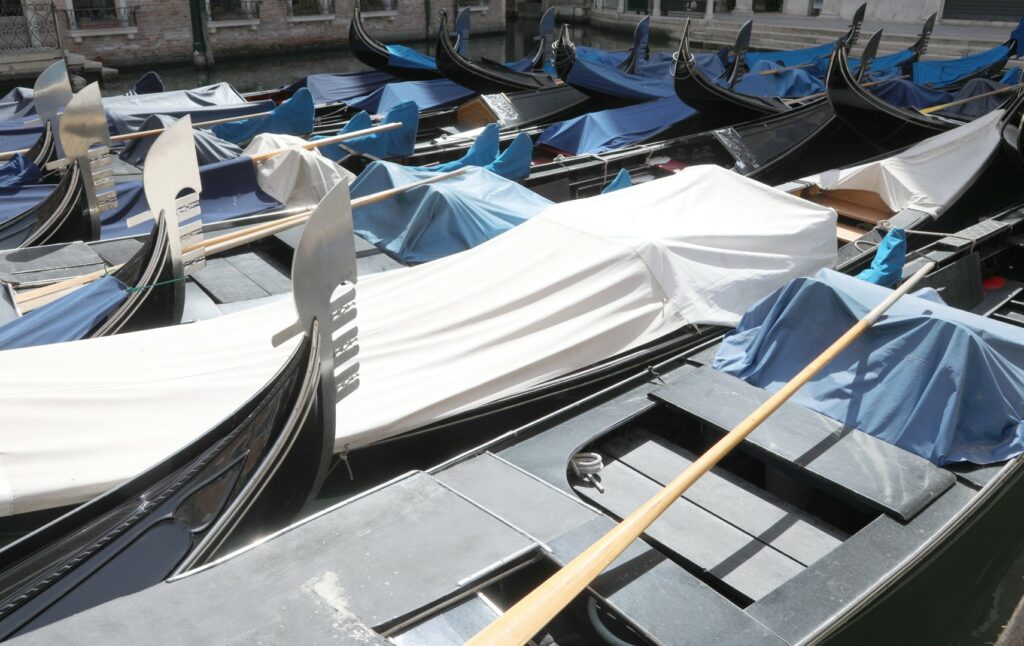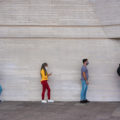The pandemic as a time of conflict and solidarity in Italy
The pandemic as a time of conflict and solidarity in Italy
The pandemic has led to many conflicts in Italy: between Church and state, rich and poor, and different religions. How will Italy emerge from this?
This article is part of our series on the social impact of COVID-19.
In Italy, like all over the world, COVID-19 had a strong social impact. In fact, Italy was one of the first European countries to have been badly hit by the virus. According to a study published by the organisation More in Common[1] conducted in 2020, Italy experienced a huge number of deaths due to the pandemic. These were aggravated by the fact that the Italian health system was not ready to respond to the crisis and nearly failed. Another aggravating factor was the large number of elderly in the country which increased the number of severe patients needing hospitalisation and the mortality rate.[2]
According to the study, Italy was one of the countries in Europe that suffered the most, not only health-wise but also economically. In fact, Italy’s economy is strongly based on tourism, and this was almost completely shut down after the outbreak of the pandemic. [3]
Solidarity during the pandemic
At the start of the pandemic, the Italian nation showed solidarity among communities and towards doctors and nurses. People were seen singing on balconies as a sign of unity.[4] Yet Italy felt that the European Union did not help enough during the crisis and during Italy’s most difficult days. Only after a long negotiation did Italy receive a loan and grant from the European Recovery Fund that amounted to €209 billion in total.[5] [6]
The pope’s ‘Fratelli tutti’ and other acts of solidarity
Since the outburst of the pandemic, Pope Francis regularly underlined the importance of showing solidarity. In an encyclical called ‘Fratelli tutti’ – published by the pope in October 2020 – he emphasised that we should live as one large family and proposed concrete actions to overcome the COVID-19 health, economic, social, and political crisis. These actions included peace, dialogue, the strengthening of multilateralism, the fight against indifference, and the promotion of social inclusion.[7] [8]
The pope also took specific actions to help the Italian people. His support of the transgender community in April 2020 is an example of his solidarity with minorities.[9] In addition, in March 2020, Pope Francis criticised the fact that many of the poorest people in the world are ignored by those in power and donated €100,000 to the Italian branch of the church charity, Caritas, to help the poor in the COVID-19 crisis.[10] In June 2020, Francis established a fund containing €1 million, dedicated to Roman citizens who were suffering from problems at work due to COVID-19. This mainly concerned daily workers, those with non-renewed contracts, and those who lost their jobs because of the coronavirus.[11]
Conflicts between Church and state
Nevertheless, solidarity was not the only result of COVID-19 in Italy. The pandemic also brought political conflicts between the Catholic Church and the state caused by the decision of the government to close churches to avoid the spread of the pandemic.[12] [13] In March 2020 for instance, Andrea Riccardi – founder of the Catholic community of Sant’Egidio – stated to be upset about the suspension of public mass. He argued that the church has always been a point of reference in times of crisis; never in the history of Italy has it happened that churches had to close. Furthermore, Riccardi claimed that people should not forget the healing power of being together to overcome this difficult situation. He finally argued that with some safety measures, masses could continue without being a cause of danger.[14]
In some cases, unauthorised services were held in private houses. Participants defended their disregard of the law by arguing that, while political decision-making is based solely on scientific facts, religion is supposed to be a source of spiritual healing and meaning for believers, especially in times of suffering and confusion.[15]
Reopening of churches despite political pressure
In March 2020, several of Rome’s Catholic churches reopened after Pope Francis voiced his displeasure with the vicar of Rome’s decision to close the city’s churches to comply with the Italian government’s plans for containing the coronavirus. The pope stated in his Friday morning prayer that “drastic measures are not always good,” and that priests ought to go out and see the sick. The vicar of Rome, Angelo De Donatis, issued a follow-up statement in which he retracted his decision and said he recognised that closing the city’s churches would sow more confusion and leave more people feeling isolated.[16]
On the same matter, Matteo Salvini, leader of the Italian Lega party, stated that for the 2020 Easter holiday, it is necessary to reopen the churches. According to Salvini, science is not enough to defeat the coronavirus pandemic; prayer is also necessary, and the protection of the Immaculate Heart of Mary is needed.[17]
In May 2020, as a result of pressure from the Church, the Italian government declared public masses could resume. A protocol signed by Prime Minister Giuseppe Conte and Cardinal Gualtiero Bassetti, president of the Italian Bishops’ Conference, outlined social distancing requirements for the reopening of the churches.[18]
Islam and Ramadan restrictions
Islamic groups were also unhappy with the restrictions in Italy. In May 2020, more than 100 Muslim immigrants gathered in Rome to celebrate Ramadan together. The police did not intervene, even though social distancing rules to limit the spread of coronavirus were not respected. A few days earlier, however, the police had fined many Italians who were taking part in a demonstration and were not wearing face masks.[19]
The arms industry and COVID-19
Another conflict between Catholic groups and the state was over the arms industry. Various Catholic groups in Italy have publically questioned the Italian government regarding the continued operation of the arms industry in the middle of the coronavirus lockdown. The inquiry coincided with the feast of St. Oscar Romero of El Salvador, patron of social justice, who was shot and killed while celebrating mass. The coalition asked defence companies to follow civil and private companies in their sacrifice to combat the spread of the coronavirus and for the public to remain vigilant regarding abuses and injustices in the workforce.[20]
The mafia and COVID-19
The COVID-19 crisis also increased difficulties for the poor. The President of the National Anti-Usury Council of Italy, Alberto D’Urso, denounced the mafia’s opportunism during the coronavirus pandemic. According to him, the mafia took advantage of the crisis by exploiting the poor and getting their assets through lending interests. D’Urso also asked the Italian government to suspend mortgage and loan payments, and for banks to not only think of profit. The pope also denounced usury in April 2020 during a Mass at his residence in the Vatican.[21]
The pandemic is a time of conflict
We have seen that the pandemic in Italy has given life to many conflicts. Between Church and state, between rich and the poor, between different religions and different points of view. While gestures of solidarity were also seen, these were not enough to ease the tension. Only time will tell if Italy will emerge from these challenging times weaker or stronger.
Want to learn more about similar topics? Go to the EARS Dashboard
Sources
[1] L’impatto del COVID-19 sulla società italiana
[2] L’impatto del COVID-19 sulla società italiana
[3] L’impatto del COVID-19 sulla società italiana
[4] Coronavirus, l’Italia sul balcone: canzoni contro la paura – la Repubblica
[5] Recovery Fund, all’Italia quasi 209 miliardi. Governance, ecco la proposta di Michel – la Repubblic
[6] L’impatto del COVID-19 sulla società italiana
[7] Fratelli tutti (3 October 2020) | Francis
[8] ENCICLICA “Fratelli tutti” sulla fraternità e l’amicizia sociale
[9] Covid, trans chiedono aiuto al Papa. E Francesco manda in soccorso l’Elemosiniere
[10] Covid-19: Pope donates 100 thousand Euros to Italian Caritas – Vatican News
[11] UGL Roma: il Papa dona un milione di euro ed istituisce il fondo lavoratori di Roma. – Roma e Provincia
[12] Suspension de toutes les messes publiques en Italie jusqu’au 3 avril – Le site de l’Eglise Catholique en Belgique
[13] Opinion | God vs. Coronavirus – The New York Times
[14] Opinion | God vs. Coronavirus – The New York Times
[15] Preghiere clandestine ai tempi del Covid-19 | Bresciaoggi
[16] Pope re-opens churches despite lockdown
[17] Coronavirus, Salvini vuole chiese aperte a Pasqua: “La scienza da sola non basta: serve anche il buon Dio” – la Repubblica
[18] Public Masses in Italy to resume May 18, ending bitter Church-state rift | Reuters
[19] Centinaia di immigrati islamici assembrati a Roma. E gli agenti stanno a guardare (video)
[20] Italian Catholic groups, NGOs call on PM to explain why arms
[21] Italian Church denounces mafia taking advantage of poor caught in coronavirus credit crunch – Novena






